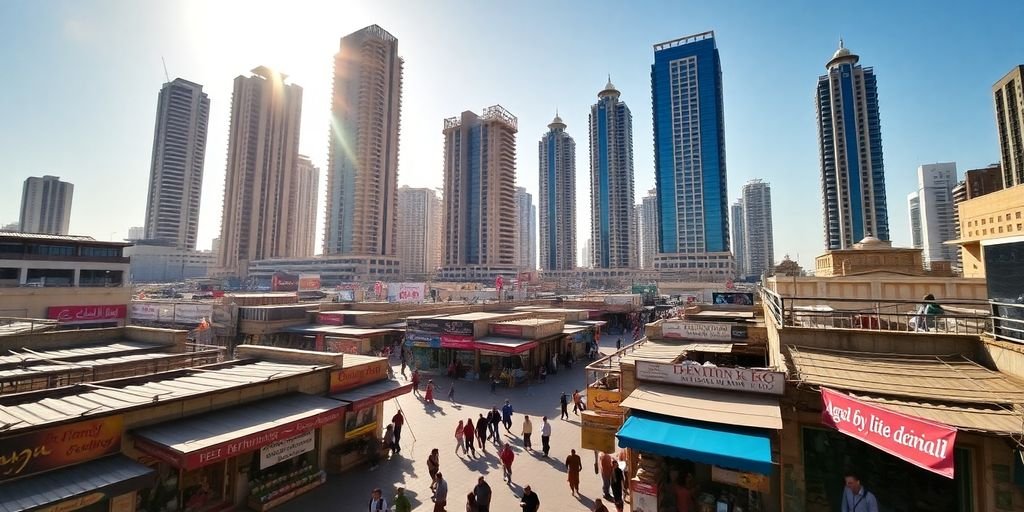The UAE’s non-oil business sector has experienced fluctuating growth, marked by periods of robust expansion and subsequent slowdowns. Despite these shifts, businesses largely maintain optimism, though tariff pressures and global economic uncertainties present ongoing challenges. Hiring trends have varied, reflecting firms’ efforts to manage workloads and adapt to market conditions.
UAE Non-Oil Sector Navigates Growth Fluctuations
The UAE’s non-oil private sector began 2025 with robust expansion, as indicated by the S&P Global Purchasing Managers’ Index (PMI) at 55.0 in January. This strong start was driven by favorable market conditions and easing cost pressures, leading to sharp increases in business activity and new orders. However, capacity pressures and competitive challenges were noted as headwinds.
By March, growth moderated, with the PMI slipping to 54.0, the slowest pace since September. New order growth also slowed for the third consecutive month. Despite this, businesses increased input purchases to clear backlogs, though employment growth hit a nearly three-year low due to recruitment difficulties. April saw growth hold steady at 54.0, with employment rising at its fastest pace in 11 months, primarily to reduce workloads and support new business.
May brought a notable slowdown, with the PMI falling to 53.3, its lowest level in nearly four years. This dip was attributed to competitive pressures and weaker trade influenced by US tariffs. Input inventories saw a record fall as firms adjusted stock levels to cooling demand, and backlogs of work grew at their weakest rate in 16 months. Despite these challenges, demand conditions remained resilient, and input price inflation eased.
Business Confidence Amidst Tariff Turbulence
Despite the fluctuating growth and tariff pressures, UAE businesses exhibit remarkable confidence in their international trade prospects. A recent HSBC survey revealed that 94% of UAE firms expect to grow cross-border trade in the near future. This optimism contrasts with global sentiment, even as 65% of UAE firms have already experienced cost increases due to tariffs, with 76% anticipating further increases in the next six months.
Key strategic responses by UAE companies to navigate this environment include:
- Enhancing data analytics (48%)
- Investing in risk management
- Improving supply chain visibility
- Entering new markets
Furthermore, 62% of surveyed UAE firms are increasing their reliance on regional trade ties, particularly with the Middle East, China, and Europe, as a proactive measure against global uncertainties.
Key Takeaways
- The UAE’s non-oil business sector experienced robust growth in early 2025, followed by moderation and slowdowns in subsequent months.
- Tariff pressures and global economic uncertainties have impacted growth, particularly in May, leading to a record fall in input inventories.
- Despite challenges, UAE businesses remain highly optimistic about future international trade, with 94% expecting growth.
- Firms are adopting strategic responses such as data analytics, risk management, and increased regional trade to mitigate tariff impacts.
- Employment trends have varied, with initial struggles in recruitment followed by increased hiring to manage workloads, though overall growth has been modest.
Sources
- UAE non-oil business sector growth slows in March, PMI shows, Reuters.
- UAE non-oil business sector expands robustly in January, PMI shows, Reuters.
- Here’s what the latest S&P PMI index says about the UAE, Gulf Business.
- 94% of UAE businesses confident of upside amid tariff turbulence, outpacing global sentiment: HSBC survey, ZAWYA.
- UAE non-oil business grows steadily in April as hiring speeds up, PMI shows, Reuters.
